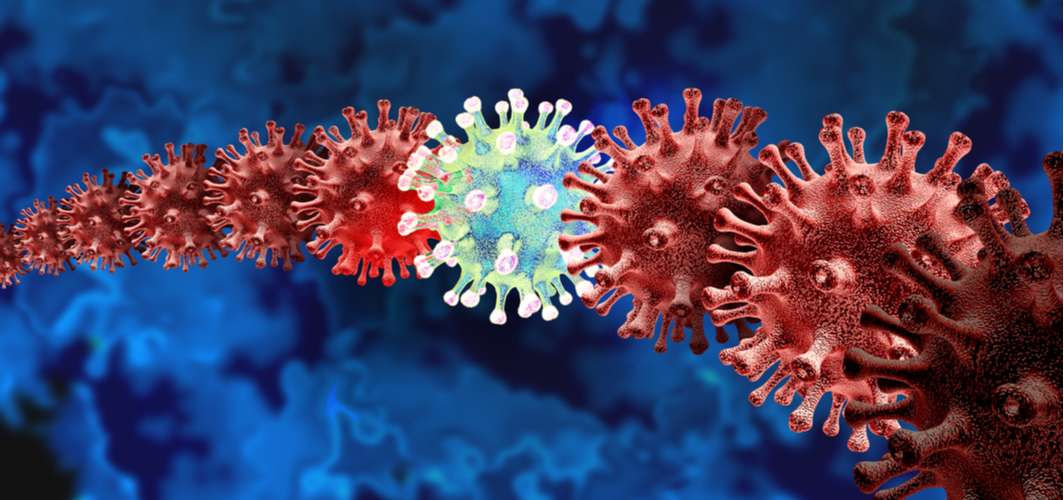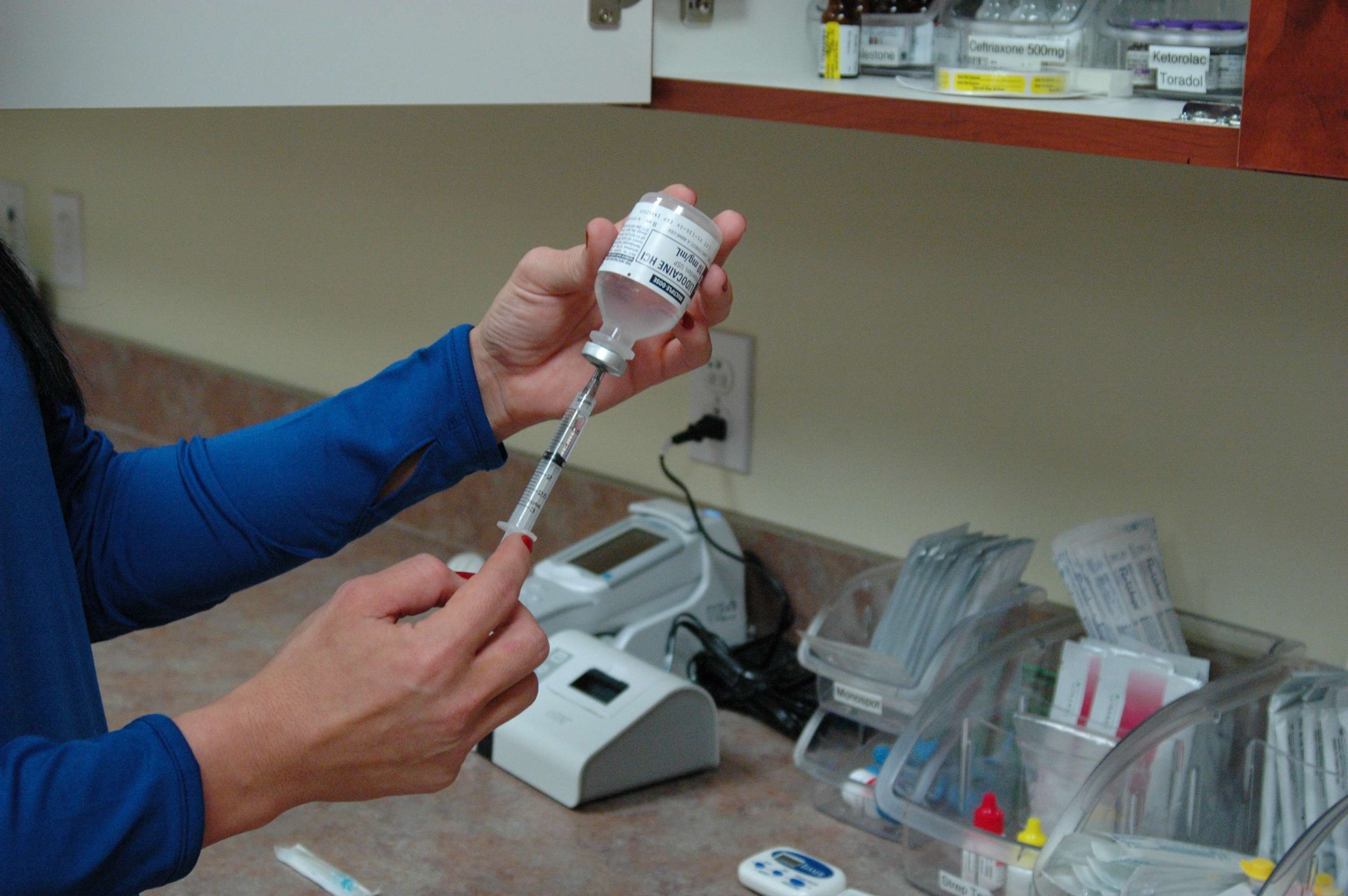COVID-19 Vaccines
COVID-19 variants of concern: Why vaccines alone may not be enough
5 min read
By Apollo 24/7, Published on - 15 April 2021, Updated on - 18 October 2022
Share this article
0
22 likes

In late 2020, many of us were hoping that the arrival of the COVID-19 vaccines would spur the end of the pandemic. The emergency approval to multiple COVID-19 vaccine candidates and the beginning of the vaccination drive in some countries only fueled that hope further. Although the vaccines are finally here and most of the countries have begun their inoculation drives, the pandemic is far from over. On the contrary, several countries including India are witnessing a massive surge in daily COVID-19 cases and fatalities. So, what has possibly gone wrong?
According to health experts, a successful global rollout of COVID-19 vaccines by itself can now no longer guarantee the end of the pandemic. The emergence and spread of variants of concern have changed the rules of the game. Unless urgent measures are taken, these new variants of concern will put vaccination and other pandemic control measures at the risk of getting derailed. The article explores the challenges that confront global vaccination efforts and the measures that need to be taken to tackle these variants.
Variants of concern
Most viruses mutate over time. This is true for SARS-CoV-2, the virus that causes COVID-19 as well. Once inside our bodies, the SARS-CoV-2 virus replicates to produce more copies of itself. Sometimes, a mistake during the replication process can create an inexact copy of the genetic material of the virus. This mistake is scientifically referred to as a mutation. Viruses with one or more mutations are referred to as variants.
It is not unusual for viruses like SARS-CoV-2 to mutate frequently and yield new variants. However, there is always a risk that some of the mutations will result in virus variants that are more infectious or deadly. Such variants are called variants of concern.
Some of the major SARS-CoV-2 variants of concern are:
- B.1.351 variant - South Africa
- B.1.1.7 variant - UK
- P.1 variant - Brazil
- Double mutant variant - India
In various parts of the world, similar variants are arising at a rapid pace simultaneously. This means that even tight border controls and vaccination have not been able to curb the rise and spread of local or home-grown COVID-19 variants, including the variants of concern, in countries with substantial community transmission.
On the other hand, in countries with high transmission rates, the SARS-CoV-2 virus is replicating more extensively. This vigorous replication has increased the risk of the emergence of newer variants of concern even further. Combined with international mobility, such variants have continued to spread throughout the world.
Will vaccines or past infections protect against the variants of concern?
According to available scientific evidence, there is a limited guarantee that vaccination or past COVID-19 infection will protect against these variants of concern. In South Africa, past infection only offers partial protection against the B.1.351 variant. Apparently, the same variant can also reduce the efficacy of the AstraZeneca COVID-19 vaccine against mild to moderate illness. However, this doesn’t mean that vaccines are completely ineffective against all the variants of concern. According to a new study data from the UK, Pfizer and AstraZeneca vaccines seem to reduce the risk of severe disease and hospitalizations from the B.1.1.7 variant.
Given the mixed results, scientists say that we cannot solely rely on vaccines to protect us against these variants. The need of the hour is to reduce community transmission while accelerating the COVID-19 vaccination in all countries in an equitable way. Together, these measures will ensure “maximum suppression” of the virus.
Maximum suppression strategy
Whenever an infection occurs, there is a risk of mutation during the replication of the virus inside the human body. As we are seeing throughout the world, many of the variants yielded by these mutations possess the ability to adversely impact the efficacy of vaccines. In order to deal with this challenge, scientists are calling for the global adoption of a “maximum suppression” strategy.
The strategy emphasizes on:
- Pandemic control efforts such as face masks, physical distancing, hand sanitization, etc.
- Prompt global rollout of vaccines in an equitable manner.
Combined, both these measures will help keep the global transmission rates low enough to prevent the emergence of new variants.
Ensuring equitable access to vaccines
To prevent the emergence of newer variants of concern, it is necessary to ensure equitable access to COVID-19 vaccines. Efforts should be undertaken to support COVID-19 vaccination in low- and middle-income countries with high transmission rates and disease prevalence. These countries are at the highest risk of experiencing outbreaks of newer variants, from where they can spread to other parts of the world.
Measures should be taken to prepare the healthcare systems against future variants. Suppression efforts should be accompanied by:
- Genomic surveillance programs to identify and quickly characterize emerging variants all across the globe
- Rapid large-scale “second-generation” vaccine programs and
- Increased vaccine manufacturing capacity to ensure equitable access to vaccines
- Studies of vaccine effectiveness on existing and newer variants of concern
- Adapting public health measures (such as double masking) and re-committing to health system arrangements (such as ensuring personal protective equipment for health staff)
- Behavioral, environmental, social, and systems interventions, such as enabling ventilation, distancing between people, and an effective find, test, trace, isolate and support system.
Conclusion
The emergence and spread of COVID-19 variants of concern have upended the existing rules of the game. It is important that governments and people recognize the threat posed by these variants to avoid the next waves of infection, lockdowns, more hospitalizations and deaths. Reinforcing the significance of pandemic control measures such as the mandatory wearing of a mask, maintaining hand hygiene, and practicing hand hygiene along with the prompt and equitable rollout of the vaccines must be ensured if we wish to gain a lead over this virus.
COVID-19 Vaccines
Leave Comment
Recommended for you

COVID-19 Vaccines
Explained: ‘Comorbidities’ for the 45+ age group
Under the second COVID-19 vaccination phase, people over 60 years of age and those aged between 45 to 59 years with certain comorbidities would be eligible for COVID-19 vaccination in the country.

COVID-19 Vaccines
How is the COVID-19 vaccine development being accelerated?
Considering the timelines of prior vaccines developed for other diseases, the COVID-19 vaccine research is progressing at an unprecedented pace.

COVID-19 Vaccines
Debunking COVID-19 Vaccine Myths with Facts
The apprehensions and fears about COVID-19 vaccines have been fueled to a great extent by the myths and misconceptions circulating on social media.
Subscribe
Sign up for our free Health Library Daily Newsletter
Get doctor-approved health tips, news, and more.
Visual Stories

Getting vaccinated? Know the DOs and DON'Ts
Tap to continue exploring
Recommended for you

COVID-19 Vaccines
Explained: ‘Comorbidities’ for the 45+ age group
Under the second COVID-19 vaccination phase, people over 60 years of age and those aged between 45 to 59 years with certain comorbidities would be eligible for COVID-19 vaccination in the country.

COVID-19 Vaccines
How is the COVID-19 vaccine development being accelerated?
Considering the timelines of prior vaccines developed for other diseases, the COVID-19 vaccine research is progressing at an unprecedented pace.

COVID-19 Vaccines
Debunking COVID-19 Vaccine Myths with Facts
The apprehensions and fears about COVID-19 vaccines have been fueled to a great extent by the myths and misconceptions circulating on social media.